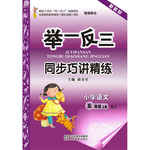题目内容
14.Students who say they never or hardly ever use dictionaries often speak English well but usually write poorly,because they make many mistakes.The students who use dictionaries most do not learn especially well either.The ones who look up every new word do not read fast.Therefore they do not have time to read much.Those who use small two-language dictionaries have the worst problems.Their dictionaries often give only one or two words as translations of English.But one English word often has many translations in a foreign language and one foreign word has many translations in English.
The most successful students are those who use large college edition dictionaries with about 100,000words but do not use them too often.When they are reading,these students first try to get the general idea and understand new words from the context.Then they reread and use the dictionary to look up only key words that they still do not understand.They use dictionaries more for writing.If they are not sure how to spell a word,or divide it into syllables (音节),they always use a dictionary.Also,if they think a noun might have an unusual plural form,they check these in a dictionary.
45.The writer thinks thatC.
A.choose a good dictionary,and you'll be successful in learning English
B.dictionaries are not necessary to the students who learn English
C.it is very important for students to use good dictionaries properly
D.using dictionaries very often can't help to improve writing
46. According to the passage,which of the following is right?C
A.Dictionaries have little effect on learning to speak English.
B.Whatever new words you meet while reading,never use dictionaries.
C.Small two-language dictionaries have serious defects (缺陷).
D.Reading something for the first time,you'd better not use dictionaries.
47.When in the reading does the writer advise students to use a good dictionary?D
A.At the beginning of the reading
B.At the end of the reading
C.During the first reading
D.After the first reading
48.This passage mainly tells usD.
A.students shouldn't use small two-language dictionaries
B.what were the defects of small two-language dictionaries
C.why students should use large college edition dictionaries
D.what dictionary students should choose and how to use it.
分析 文章是关于学生在学习英语的时候使用字典的问题,该如何用字典,用什么样的字典最合适.
解答 45.C 细节题.根据第二段举出的例子Thosewho use small two-language dictionaries have the worst problems,使用不恰当的字典反而会犯更糟的错误,说明正确使用合适的字典很重要,故C正确.
46.C.理解推断题.由文章可知使用字典很重要,A错误,由第二段Thosewho use small two-language dictionaries have the worst problems,可知使用小的双语字典会犯更糟的错误,C正确,由第三段When they are reading,these students first try to get the general idea and understand new words from the context,可知在第一遍阅读不懂时时查字典是最好的,B、D错误,故选C.
47.D.细节题.由第三段When they are reading,these students first try to get the general idea and understand new words from the context,可知在第一遍阅读时查字典是最好的,故选D.
48.D 主旨大意题.文章是关于学生在学习英语的时候使用字典的问题,该如何用字典,用什么样的字典最合适.故D正确.
点评 本篇文章主要是细节理解方面的题型,需要考生通过跳读迅速找到对应的句子进行详细理解,句子的理解可以结合上下文意思,通过逻辑推理得到.

练习册系列答案
 举一反三同步巧讲精练系列答案
举一反三同步巧讲精练系列答案 口算与应用题卡系列答案
口算与应用题卡系列答案 名师点睛字词句段篇系列答案
名师点睛字词句段篇系列答案
相关题目
16.-Steven,how was your interview with the manager?
- He seemed uninterested in what I said.( )
- He seemed uninterested in what I said.( )
| A. | That's it. | B. | It couldn't be better. | ||
| C. | I'm not sure. | D. | Cheer up! |